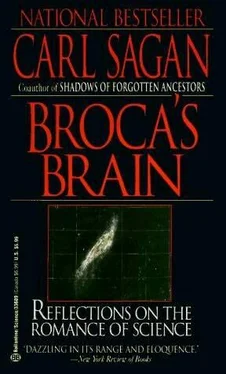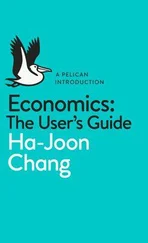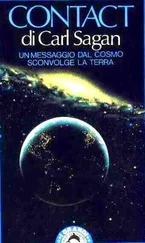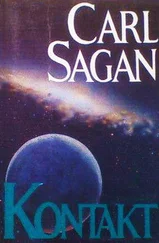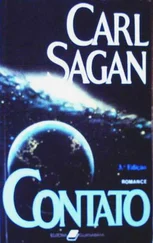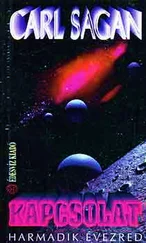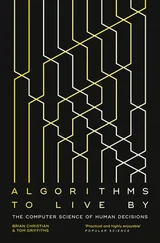Carl Sagan - Broca's Brain - The Romance of Science
Здесь есть возможность читать онлайн «Carl Sagan - Broca's Brain - The Romance of Science» весь текст электронной книги совершенно бесплатно (целиком полную версию без сокращений). В некоторых случаях можно слушать аудио, скачать через торрент в формате fb2 и присутствует краткое содержание. Жанр: Физика, на английском языке. Описание произведения, (предисловие) а так же отзывы посетителей доступны на портале библиотеки ЛибКат.
- Название:Broca's Brain: The Romance of Science
- Автор:
- Жанр:
- Год:неизвестен
- ISBN:нет данных
- Рейтинг книги:3 / 5. Голосов: 1
-
Избранное:Добавить в избранное
- Отзывы:
-
Ваша оценка:
- 60
- 1
- 2
- 3
- 4
- 5
Broca's Brain: The Romance of Science: краткое содержание, описание и аннотация
Предлагаем к чтению аннотацию, описание, краткое содержание или предисловие (зависит от того, что написал сам автор книги «Broca's Brain: The Romance of Science»). Если вы не нашли необходимую информацию о книге — напишите в комментариях, мы постараемся отыскать её.
Broca's Brain: The Romance of Science — читать онлайн бесплатно полную книгу (весь текст) целиком
Ниже представлен текст книги, разбитый по страницам. Система сохранения места последней прочитанной страницы, позволяет с удобством читать онлайн бесплатно книгу «Broca's Brain: The Romance of Science», без необходимости каждый раз заново искать на чём Вы остановились. Поставьте закладку, и сможете в любой момент перейти на страницу, на которой закончили чтение.
Интервал:
Закладка:
When I give lectures on borderline or pseudo or folk science (along the lines of Chapters 5 through 8 of this book) I am sometimes asked if similar criticism should not be applied to religious doctrine. My answer is, of course, yes. Freedom of religion, one of the rocks upon which the United States was founded, is essential for free inquiry. But it does not carry with it any immunity from criticism or reinterpretation for the religions themselves. The words “question” and “quest” are cognates. Only through inquiry can we discover truth. I do not insist that these connections between religion and perinatal experience are correct or original. Many of them are at least implicit in the ideas of Stanislav Grof and the psychoanalytic school of psychiatry, particularly Otto Rank, Sandor Ferenczi and Sigmund Freud. But they are worth thinking about.
There is, of course, a great deal more to the origin of religion than these simple ideas suggest. I do not propose that theology is physiology entirely. But it would be astonishing, assuming we really can remember our perinatal experiences, if they did not affect in the deepest way our attitudes on birth and death, sex and childhood, on purpose and ethics, on causality and God.
AND COSMOLOGY. Astronomers studying the nature and origin and fate of the universe make elaborate observations, describe the cosmos in differential equations and the tensor calculus, examine the universe from X-rays to radio waves, count the galaxies and determine their motions and distances-and when all is done a choice is to be made between three different views: a Steady State cosmology, blissful and quiet; an Oscillating Universe, in which the universe expands and contracts, painfully and forever; and a Big Bang expanding universe, in which the cosmos is created in a violent event, suffused with radiation (“Let there be light”) and then grows and cools, evolves and becomes quiescent, as we saw in the previous chapter. But these three cosmologies resemble with an awkward, almost embarrassing precision the human perinatal experiences of Grof’s Stages 1, 2, and 3 plus 4, respectively.
It is easy for modern astronomers to make fun of the cosmologies of other cultures-for example, the Dogon idea that the universe was hatched from a cosmic egg (Chapter 6). But in light of the ideas just presented, I intend to be much more circumspect in my attitudes toward folk cosmologies; their anthropocentrism is just a little bit easier to discern than ours. Might the puzzling Babylonian and Biblical references to waters above and below the firmament, which Thomas Aquinas struggled so painfully to reconcile with Aristotelian physics, be merely an amniotic metaphor? Are we incapable of constructing a cosmology that is not some mathematical encrypting of our own personal origins?
Einstein’s equations of general relativity admit a solution in which the universe expands. But Einstein, inexplicably, overlooked such a solution and opted for an absolutely static, nonevolving cosmos. Is it too much to inquire whether this oversight had perinatal rather than mathematical origins? There is a demonstrated reluctance of physicists and astronomers to accept Big Bang cosmologies in which the universe expands forever, although conventional Western theologians are more or less delighted with the prospect. Might this dispute, based almost certainly on psychological predispositions, be understood in Grofian terms?
I do not know how close the analogies are between personal perinatal experiences and particular cosmological models. I suppose it is too much to hope that the originators of the Steady State hypothesis were each born by Caesarean section. But the analogies are very close, and the possible connection between psychiatry and cosmology seems very real. Can it really be that every possible mode of origin and evolution of the universe corresponds to a human perinatal experience? Are we such limited creatures that we are unable to construct a cosmology that differs significantly from one of the perinatal stages? [28]Is our ability to know the universe hopelessly ensnared and enmired in the experiences of birth and infancy? Are we doomed to recapitulate our origins in a pretense of understanding the universe? Or might the emerging observational evidence gradually force us into an accommodation with and an understanding of that vast and awesome universe in which we float, lost and brave and questing?
It is customary in the world’s religions to describe Earth as our mother and the sky as our father. This is true of Uranus and Gaea in Greek mythology, and also among Native Americans, Africans, Polynesians, indeed most of the peoples of the planet Earth. However, the very point of the perinatal experience is that we leave our mothers. We do it first at birth and then again when we set out into the world by ourselves. As painful as those leave-takings are, they are essential for the continuance of the human species. Might this fact have some bearing on the almost mystical appeal that space flight has, at least for many of us? Is it not a leaving of Mother Earth, the world of our origins, to seek our fortune among the stars? This is precisely the final visual metaphor of the film 2001: A Space Odyssey. Konstantin Tsiolkovsky was a Russian schoolmaster, almost entirely self-educated, who, around the turn of the century, formulated many of the theoretical steps that have since been taken in the development of rocket propulsion and space flight. Tsiolkovsky wrote: “The Earth is the cradle of mankind. But one does not live in the cradle forever.”
We are set irrevocably, I believe, on a path that will take us to the stars-unless in some monstrous capitulation to stupidity and greed, we destroy ourselves first. And out there in the depths of space, it seems very likely that, sooner or later, we will find other intelligent beings. Some of them will be less advanced than we; some, probably most, will be more. Will all the space-faring beings, I wonder, be creatures whose births are painful? The beings more advanced than we will have capabilities far beyond our understanding. In some very real sense they will appear to us as godlike. There will be a great deal of growing up required of the infant human species. Perhaps our descendants in those remote times will look back on us, on the long and wandering journey the human race will have taken from its dimly remembered origins on the distant planet Earth, and recollect our personal and collective histories, our romance with science and religion, with clarity and understanding and love.
REFERENCES
CHAPTER 3
FEUER, LEWIS S., Einstein and the Generations of Science. New York, Basic Books, 1974.
FRANK, PHILIPP, Einstein: His Life and Times. New York, Knopf, 1953.
HOFFMAN, BANESH, Albert Einstein: Creator and Rebel. New York, New American Library, 1972.
SCHILPP, PAUL, ED., Albert Einstein: Philosopher Scientist. New York, Tudor, 1951.
CHAPTER 5
“Alexander the Oracle-Monger,” in The Works of Lucian of Samosata. Oxford, Clarendon Press, 1905.
CHRISTOPHER, MILBOURNE, ESP, Seers and Psychics. New York, Crowell, 1970.
COHEN, MORRIS, and NAGEL, ERNEST, An Introduction to Logic and Scientific Method. New York, Harcourt Brace, 1934.
EVANS, BERGEN, The Natural History of Nonsense. New York, Knopf, 1946.
GARDNER, MARTIN, Fads and Fallacies in the Name of Science. New York, Dover, 1957.
MACKAY, CHARLES, Extraordinary Popular Delusions and the Madness of Crowds. New York, Farrar, Straus & Giroux, Noonday Press, 1970.
Читать дальшеИнтервал:
Закладка:
Похожие книги на «Broca's Brain: The Romance of Science»
Представляем Вашему вниманию похожие книги на «Broca's Brain: The Romance of Science» списком для выбора. Мы отобрали схожую по названию и смыслу литературу в надежде предоставить читателям больше вариантов отыскать новые, интересные, ещё непрочитанные произведения.
Обсуждение, отзывы о книге «Broca's Brain: The Romance of Science» и просто собственные мнения читателей. Оставьте ваши комментарии, напишите, что Вы думаете о произведении, его смысле или главных героях. Укажите что конкретно понравилось, а что нет, и почему Вы так считаете.
